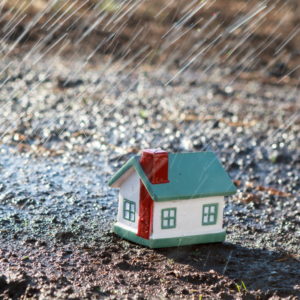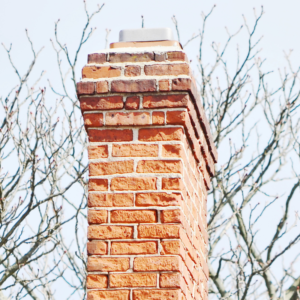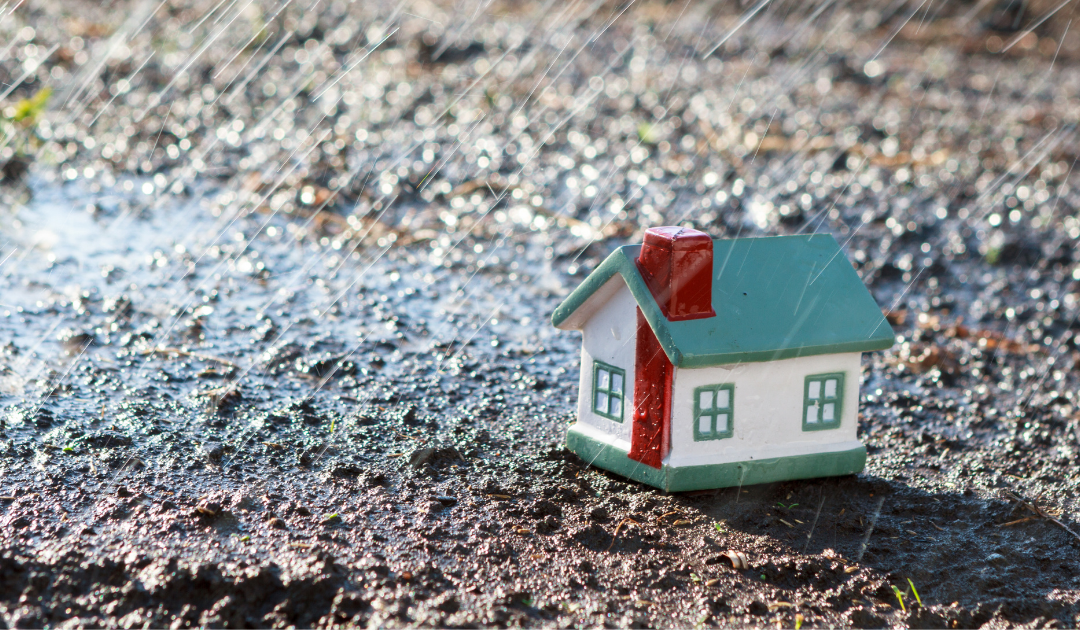When was the last time you thought about the condition of your chimney?
Most homeowners assume the chimney doesn’t require much maintenance. That said, because it’s always exposed to the elements, it’s likely to inevitably suffer damage. To protect it, one of the best things you can do is invest in chimney waterproofing. Let’s go over just how water damage can affect your chimney, as well as the benefits of waterproofing your chimney and why hiring a pro for the job is always a good route.
How Leaks and Water Damage Affect Your Chimney
Day after day, your chimney is exposed to the whims of the weather — rain, sleet, snow, and all types of condensation. All of these create moisture in your chimney. Regardless of how often you use your chimney, moisture is the biggest enemy to its longevity.
 According to the Chimney Safety Institute of America (CSIA), “All masonry chimney construction materials, except stone, will suffer accelerated deterioration as a result of prolonged contact with water.” Over time, moisture softens your chimney’s exposed masonry. And when the season’s change and the freeze-thaw cycle kicks in, your masonry is further weakened.
According to the Chimney Safety Institute of America (CSIA), “All masonry chimney construction materials, except stone, will suffer accelerated deterioration as a result of prolonged contact with water.” Over time, moisture softens your chimney’s exposed masonry. And when the season’s change and the freeze-thaw cycle kicks in, your masonry is further weakened.
What’s the freeze/thaw cycle? Well, because bricks are porous, the moisture they soak up will expand when freezing. The expansion causes tiny cracks that form inside the bricks. During the thaw cycle, the water then leaks out. These leaks can heavily damage not only the structural integrity of your chimney, but also the interior of your chimney.
When water leaks into your chimney, it can significantly damage your flue liner, which protects your chimney and the rest of your home from excessive heat transfer. Water can also rust the damper, which controls the airflow in your chimney, and any other metal components, like the chimney cap or flashing.
All of these things increase the risk of both carbon monoxide poisoning and chimney/house fires. Waterproofing is one of the best way to protect your chimney and your home against these risks.
The Long-Term Benefits of Waterproofing Your Chimney
If you’ve never considered waterproofing your chimney before, there’s no better time than the present. Waterproofing your chimney is a long-term investment that will bring you returns for years to come.
 Lower Risk of a House Fire: A non-waterproofed chimney is subject to damage that makes it more likely to catch fire. By waterproofing your chimney, you ensure that the masonry remains stable and capable of resisting heat. Even if you don’t use your chimney often, it just takes one instance of excessive heat to start a potentially disastrous fire.
Lower Risk of a House Fire: A non-waterproofed chimney is subject to damage that makes it more likely to catch fire. By waterproofing your chimney, you ensure that the masonry remains stable and capable of resisting heat. Even if you don’t use your chimney often, it just takes one instance of excessive heat to start a potentially disastrous fire.- Prevent Water Damage: Moisture in your chimney can leak into other nearby areas, namely the attic, ceiling, and roof. These leaks can cause wood rot, ceiling stains, and drywall damage, which will necessitate significant repairs. Don’t create unnecessary expenses by preventing water damage early on.
- Ensure Complete Protection of Your Chimney: You might assume that your chimney is protected from water because you have a chimney cap. However, it’s only akin to an umbrella in a rainstorm — it might protect you from rain up top, but the rest of your body is going to be buffeted by rain that comes in at an angle. To protect your chimney entirely, you need a good chimney cap, flashing, chimney crown, and a vapor-permeable waterproof coating.
- Increase Your Chimney’s Lifespan: No chimney is going to last forever. A non-waterproofed chimney, however, will last significantly shorter than a waterproofed one. You can extend the life of your chimney and venting system by waterproofing, which will protect it from water, weathering, and rust damage.
Now, you might think that your chimney doesn’t need waterproofing because it’s lasted this long without breaking down. In truth, nine out of ten masonry chimneys already have undetected cracks at the top. By spending a little bit of time and money now, you won’t have to rebuild your entire chimney in the future. Call today to get your inspection booked.
How To Waterproof Your Chimney
If you know your way around a chimney, you can attempt waterproofing it yourself. That said, waterproofing a damaged chimney won’t improve its condition, so be sure to schedule an inspection and any necessary chimney repairs with a professional before starting out. Minor cracks, spalling, and a few missing bricks can be relatively easy to address, but extensive damage might require a complete renovation first.
After repairs, you should clean the brickwork. Mold, algae, grime, dirt, and other common contaminants can compromise the effectiveness of a waterproof coating. However, avoid using high-pressure washers to clean your chimney as the bricks can become damaged. Once your chimney is clean and dry, you can apply the sealant.
Waterproofing sealant can be applied with a paint roller, brush, squeegee, or airless sprayer. Two things are crucial at this stage – getting into small gaps and choosing the right product. Typical clear sealants, silicones, or paints aren’t good for your chimney because they don’t allow the bricks to breathe. Read the fine print and make sure the products you’re using are 100% vapor permeable.
Don’t Want to Risk Damage? Hire a Pro
While you can certainly try waterproofing your chimney yourself, you also run the risk of using the wrong techniques and products, which can do more harm than good. If you miss important areas, or if the sealant ends up trapping water in your chimney, you’ll still see a lot of damage, and you’ll still need to pay for professional help.
Oftentimes, the most cost-effective (and easier) option will be to hire a chimney and venting company, like English Sweep, from the very start. We can accurately assess the condition of your chimney and ensure you’re getting the protection you deserve from start to finish.
Give Us a Call
Don’t wait. Springtime is the ideal time to get your waterproofing services done, so you’re all set and ready to light fires come fall. Give us a call or reach out online to get started!


Recent Comments